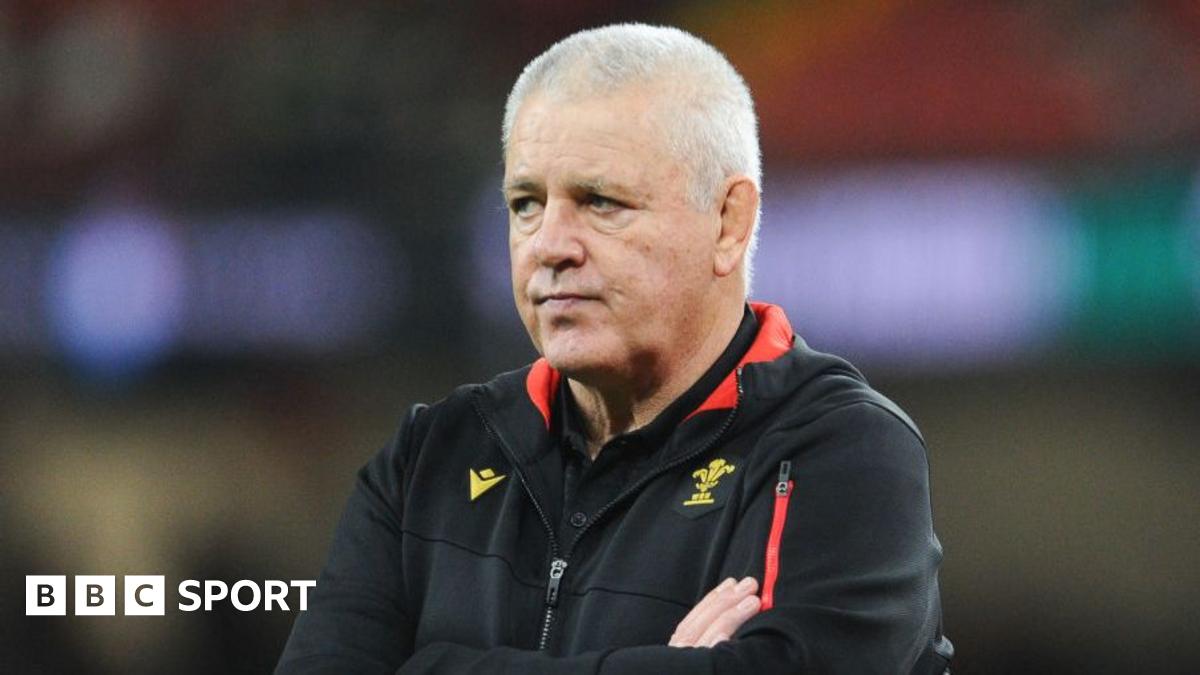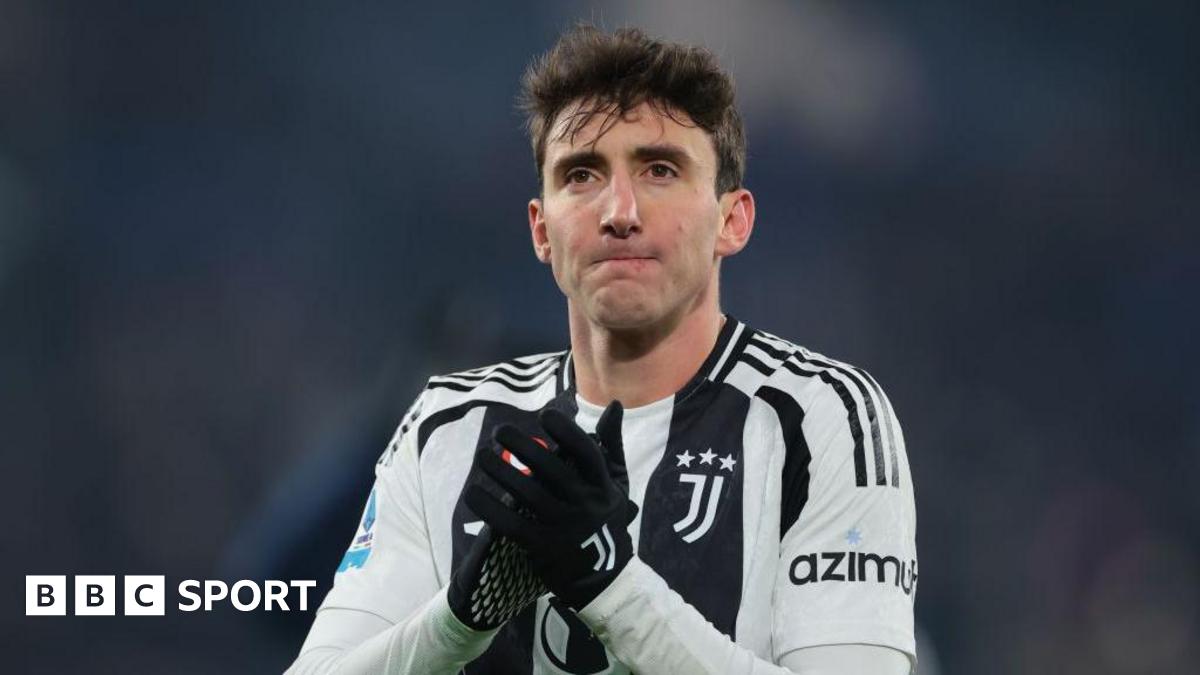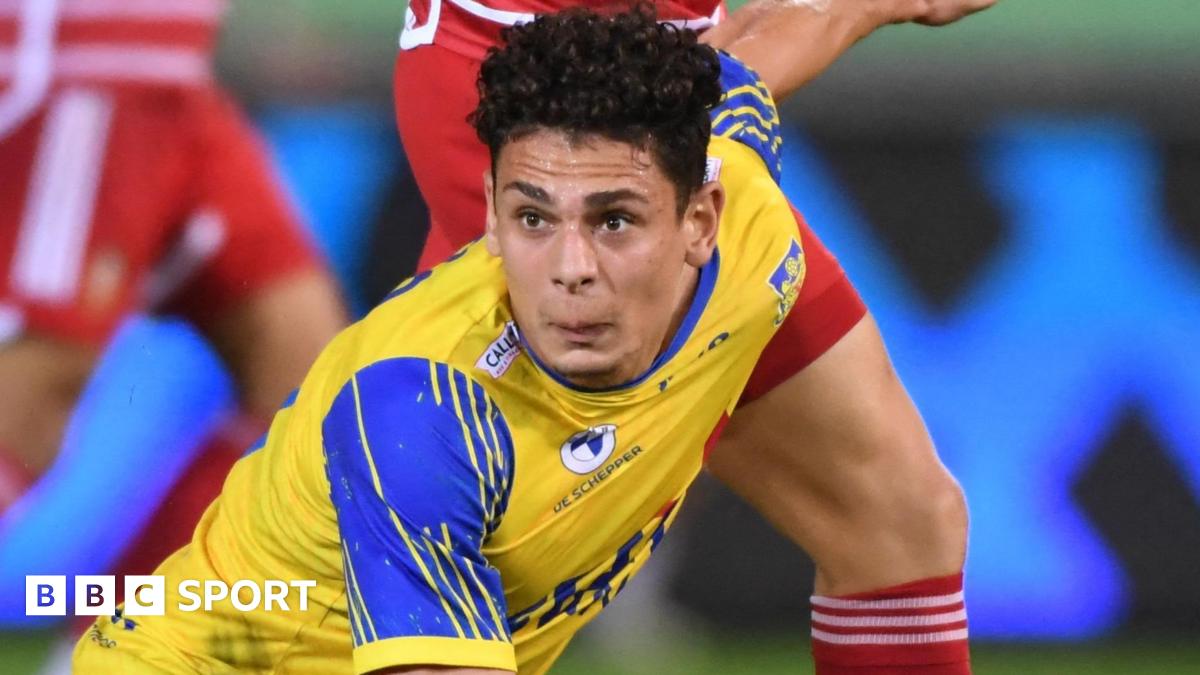ARTICLE AD BOX
Slot admits Alexander-Arnold 'not at best' against 'outstanding' Fernandes
Daniel Austin
BBC Sport senior journalist
The power of the Anfield crowd is well documented in football - on so many occasions over the years, Liverpool have been roared to famous victories by their supporters.
During Sunday's 2-2 draw with arch-rivals Manchester United, though, a subdued atmosphere was punctuated by howls of derision aimed at one of the club's own players.
The performance of vice-captain Trent Alexander-Arnold - whose future is in doubt with his contract up in June, and Real Madrid circling - was consistently met with groans, abusive name-calling and expletive-laden shouts that he should leave as soon as possible.
This wasn't the entirety of the home support, but from the point he miscued a pass early in the game, Alexander-Arnold had a significant proportion of the crowd on his back.
At one point in the second half, head coach Arne Slot remonstrated with the crowd over their treatment of the right-back.
Gareth Roberts, host of the Liverpool fan podcast Late Challenge and a Kop season-ticket holder, told the BBC: "Everything about it was weird. There were a few boos around me. It goes against being a supporter doesn't it? It's gone toxic from a proportion of the fanbase."
How has it ended up this way?
How has Alexander-Arnold's situation developed?
Alexander-Arnold has been a key part of Liverpool's strong run so far this season, producing high-quality passing and playmaking in attack, while being much improved defensively. Occasional poorer performances have been blots on a generally excellent campaign.
But fans have worried since last summer that a player who joined the Reds' academy aged six was setting himself up for a move away. With the situation still unresolved, the relationship between fans and player has become more tense, strained and angry.
Alexander-Arnold irritated some Reds supporters in October by saying in an interview with Sky Sports that he would rather win a Ballon d'Or, external, football's most prestigious individual honour, than another Champions League with his boyhood team. Since then, there has been a belief among some fans that he is more focused on his own achievements.
Then he celebrated with a 'chat' gesture referencing the gossip about his future after scoring against West Ham on 29 December. That led to widespread fan frustration, given that the main reason for the speculation is that Alexander-Arnold has not made clear publicly whether he wants to stay or go.
Image source, Getty Images
Image caption,Alexander-Arnold's 'chat' gesture came after his goal in a 5-0 win at West Ham
Why is Alexander-Arnold facing such a backlash?
Neither Virgil van Dijk nor Mohamed Salah - who has made repeated claims in interviews that he is not close to agreeing a new deal with Liverpool and expects to leave in the summer - have been targeted with derision or abuse during matches.
The fact that Alexander-Arnold was born and raised in Liverpool seems key to that. Fans of all clubs often believe that they have a greater right to ownership over the careers of local players, and that they are owed greater loyalty by "one of our own".
Roberts added: "People think: 'You've grown up as a scouser, a Liverpool fan, you've lived our dream, and therefore how could you possibly consider going anywhere else?' But I think yes, he was a fan once, and now he's a professional sportsman. We've got to appreciate that fact, and I don't think people do. We just look at it from our perspective and think we would never leave.
"If you've given 20 years to the same club, you're well within your rights to say you fancy something else because you only live once. It's all a bit mad.
"When it's the other way around, when a club just says 'see you' to a player, we don't really think about that much, do we?"
Speaking on Sky Sports, former Liverpool defender Jamie Carragher said: "I have constantly defended him [Alexander-Arnold]. The lad came for nothing and if he leaves for nothing, there should be no criticism for that.
"My only problem with Trent, if he leaves... it's not anger or upset with him, it's disappointment... My only disappointment is Trent is a local lad, Liverpool fan. Equalling Manchester United in league titles, winning a European Cup... he could be captain in two or three years and the guy who lifts these trophies.
"Liverpool supporters are disappointed. That's where my disappointment comes from."
Gerrard, Owen, McManaman - has this happened at Liverpool before?
Alexander-Arnold's situation has been compared with the departures of Steve McManaman in 1999 and Michael Owen in 2004. Both left when Liverpool were not among Europe's best teams, opting to join Real Madrid towards the end of their contracts.
McManaman played a key role in two Champions League wins with the Spanish giants, while Owen was back in England with Newcastle after a single trophyless season.
Steven Gerrard was very close to leaving Liverpool for Chelsea after winning the Champions League in 2005 before opting to stay at Anfield under the weight of enormous public pressure. In the subsequent 10 years before his move to LA Galaxy, Gerrard won an FA Cup and an EFL Cup.
But the Liverpool departure which feels most akin to Alexander-Arnold's situation is that of Raheem Sterling. By the time the former England winger left for Manchester City in 2015, having publicly revealed his desire to leave the club in an interview with the BBC, he was being regularly lambasted by Liverpool fans home and away.
How did Liverpool let it get this far?
Liverpool's management of the contract renewals of their three star players has drawn criticism.
Despite being one of Europe's most efficiently run clubs, the Reds have been in flux behind the scenes over the past few years.
Since 2021, Liverpool have employed four different sporting directors. During that period, owners Fenway Sports Group made clear they were open to selling the club - ultimately opting to offload a minority stake instead. And last January, manager Jurgen Klopp unexpectedly announced he would leave at the end of the season.
Only those inside the club - and those representing the players - will know if that uncertainty has contributed.
Could the toxicity harm Liverpool's season?
Many neutral fans and, equally, many Liverpool fans, believe that because Alexander-Arnold has won everything with his boyhood club, it is entirely rational if he wants to experience something new elsewhere.
"It doesn't make sense to bring that to the ground," Roberts added. "The collective goal is to win the league. We all want that. Getting on the back of our own player is wild. Anyone who is pulling on the red shirt, you support them."
But while it may be the rational thing for supporters to park their grievances during matches, football fandom has always been an emotional rather than rational pursuit.
With that in mind, the longer that Alexander-Arnold's future remains unresolved, the more audible some supporters may become.
In a season well controlled so far by Slot, his staff and his squad, internal confusion, anger and unrest could present as great a risk to their ambitions as any rival team.

 1 week ago
5
1 week ago
5








 English (US) ·
English (US) ·